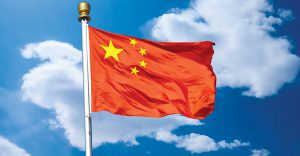Bloomberg
Chinese companies raised a record amount in initial public offerings (IPOs) at home this year, defying a global slump. And with the end of Covid Zero in sight, 2023 could be set for another strong showing.
Listings in Shanghai, Shenzhen and the recently inaugurated Beijing exchange brought in $92 billion this year, according to data compiled by Bloomberg. That’s propelled China’s share in the global tally for IPO proceeds to 46%, four times the US, from just 13% at the end of last year.
After a push by local authorities in recent years, a slew of factors have enabled the feat. Policy easing in the Asian country has been a key catalyst just as rising borrowing costs deterred listings in traditional venues such as Hong Kong and London. At the same time, China’s crumbling real-estate market forced many investors to look for an alternative to put their money to work.
“The pipeline of high-quality Chinese companies with ambitions of an IPO has only grown during 2022, and will continue to do so throughout 2023,†said James Bean, an ECM portfolio manager at Myriad Asset Management. “Many of these will look to raise capital as soon as there is further evidence of success in the transition to a post Covid-Zero economy and support for the domestic labour market,†among other reasons, he said.
Past performance has also played a role in luring buyers. Newly listed shares in China tend to fare much better on average than the overall market due to valuation rules that regulate IPOs. There have been 391 debuts in China this year. Nine of them raised above $1 billion, accounting for about 40% of all deals of that size or bigger globally. New York bourses hosted only two IPOs of that magnitude, Hong Kong had three and Europe had just one, in Germany.
China’s domestic pipeline for next year is solid. About 376 companies have announced IPO plans over the past six months that are now under pending status, data compiled by Bloomberg show, meaning they could go public in 2023.
Some of the largest deals early in the year were a consequence of Sino-American tensions. Telecom provider China Mobile Ltd and energy producer CNOOC Ltd both listed at home after being kicked out of the US market
following their inclusion on a blacklist created during Donald Trump’s administration.
With the US market almost entirely shut for Chinese issuers, many of those listed in the mainland chose to sell shares in Europe, particularly in Switzerland, a trend that is also seeing continuing next year.
 The Gulf Time Newspaper One of the finest business newspapers in the UAE brought to you by our professional writers and editors.
The Gulf Time Newspaper One of the finest business newspapers in the UAE brought to you by our professional writers and editors.
